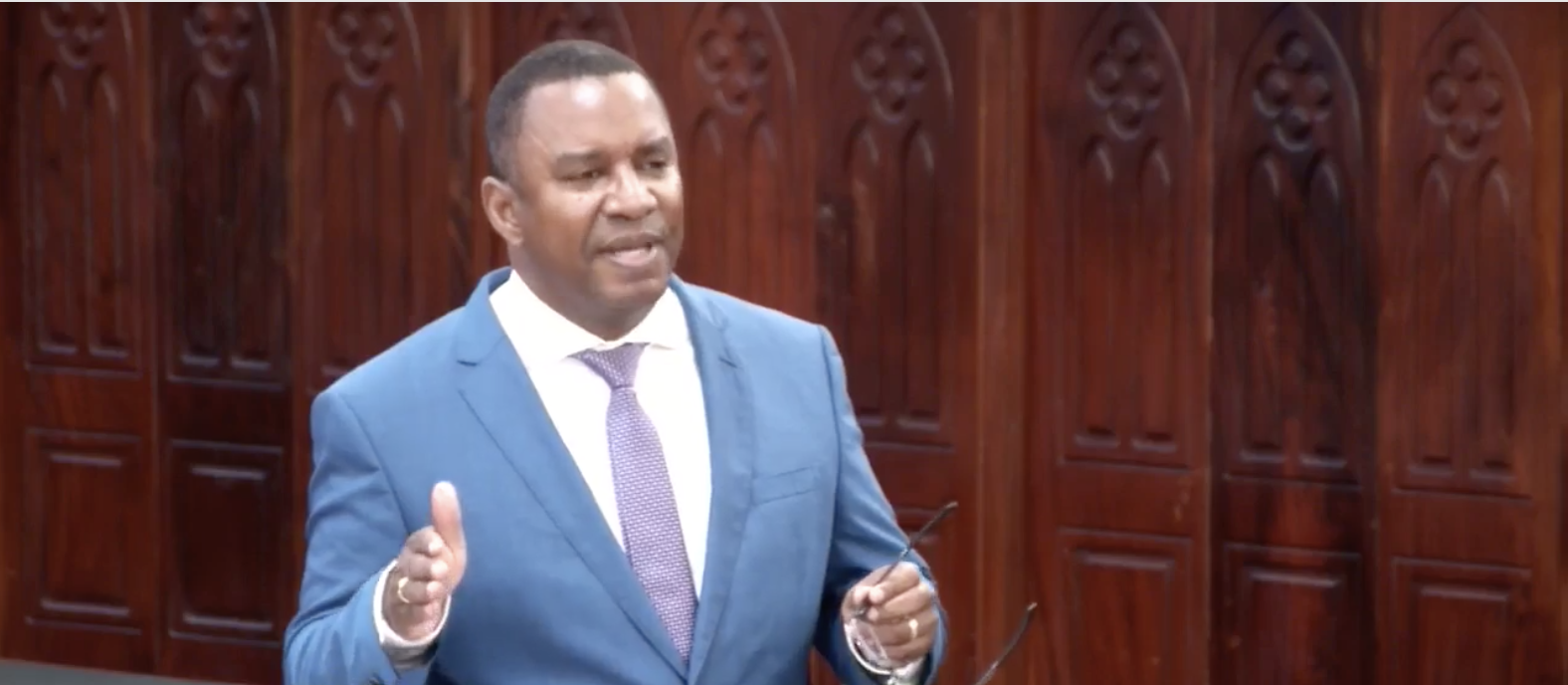Sweeping changes to treatment of children before courts By Anesta Henry Major changes are coming to the way children are dealt with by the law courts with imprisonment to be used only as a last resort. Introducing the Child Justice Bill, 2023 to Parliament on Tuesday, Minister of Home Affairs Wilfred Abrahams disclosed that the new legislation, intended to promote judicial discretion, also prohibits corporal punishment under the penal system or in any sentencing, regardless of the offence. He indicated that a “critical addition to the legislation” is that a child under the age of 12 “is not capable of committing a criminal offence”. Additionally, the minister said, in cases where a child is charged, imprisonment “shall be used as a sentence of last resort and the sentence shall not be imposed unless the child is the age of 14 years or older at the time of the commission of the offence”. Abrahams indicated that under the new legislation, guided by assessments of children who run afoul of the law, magistrates can engage other options before beginning formal proceedings in the court. “At any point in time in those proceedings prior to the close of the prosecution’s case, the magistrate can halt the proceedings and recommend diversion or make a diversion order in respect of the case. And the lawyers representing the children are also encouraged to be able to push for diversion orders. “The diversion order says you don’t have to go through these formal proceedings, let’s have an evaluation on you. Maybe an apology might be sufficient, maybe an apology and counselling might be sufficient. “If the matter is so diverted and the child satisfies the terms of the diversion order and complies with a favourable report from the probation officer, then that’s the end of the matter. The child has no conviction against them and is not in danger or going anywhere and can go home to his family,” he explained. If a child is found guilty by the court, Minister Abrahams said, the court cannot impose a custodial sentence unless a pre-sentencing report has been received and considered. “The pre-sentencing conference includes the probation officer, it includes the representatives of the child, and it can include the child as well. There is no unilateral decision-making with respect to the sentencing of the children. At all points in time, the child’s interests are there to be represented. So that the final outcome, no matter what it is, is one that has had the child at the centre and all options in relation to the child have been considered,” he said. Abrahams also stated that a child who is picked up by the police for being in conflict has the right to be represented by an attorney-at-law. “The law actually says that the child has a right at every stage to be represented by an attorney paid for by the government. So we may have to reshape the legal aid framework because…this is not discretionary. “Any child who wishes to avail themselves or any parent who wishes to have their child avail themselves of legal representation is free to do so, whatever the offence, at the expense of the state,” Abrahams told the Lower Chamber. He said attorneys representing children will be required to follow specific rules and guidelines, adding that informal, “child-friendly” court proceedings will be required. The minister also explained that for the first time, where a court makes a determination of guilt with respect to a child, it may refer the matter to a family group conference aimed at restorative justice to bridge the gap between the victim of an offence and the child who was in conflict with the law. “This is alternative dispute resolution at its best. This is perhaps the most progressive thing that we have done in relation to resolving issues or disputes involving children,” Abrahams noted. “But if, for some reason, the family group conference can’t bring a resolution, then the matter is referred back to the court which will proceed with the sentencing.” The Home Affairs Minister said that according to the new law, corporal punishment or severe or frightening measures shall not be inflicted on a child who is imprisoned or in a secure residential facility. “What does that mean? Not just corporal punishment or whipping, as the legislation has it, but you can’t even threaten to do it. You cannot punish a child in a way that is severe or frightening to that child. “The child must understand the reason for which they are being punished and the punishment, for the most part, is also set out in the new legislation. But what is clear is that corporal punishment is now completely removed as an option in relation to children under our penal system,” he said. anestahenry@barbadostoday.bb ]]>
JUSTICE OVERHAUL
364




